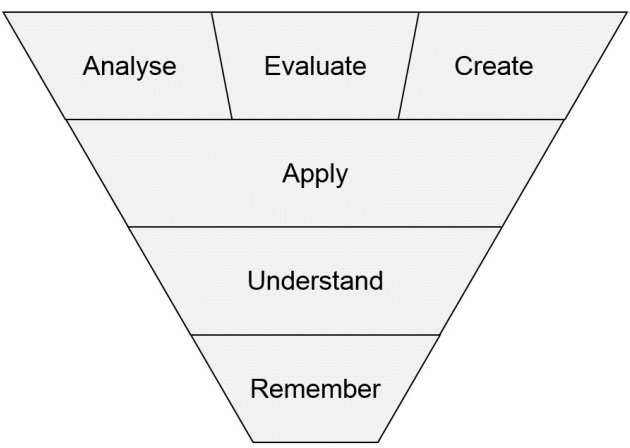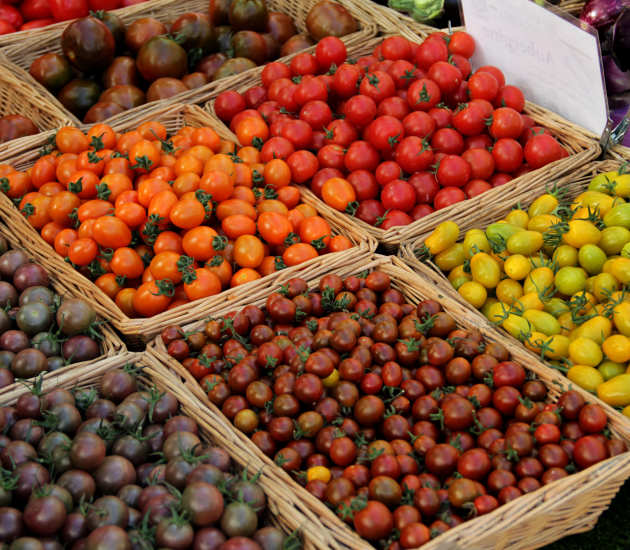A 'critical thinker' does not blindly accept a theory, argument or opinion until they have verified the data or hypothesis on which it is based.
You should not be mesmerised by star professors, writers, publications and organisations. A postgraduate academic needs to be able to assess information and opinion thoroughly and analytically to determine whether it is accurate and believable. This skill can mastered with effort and practice.

You will want to use these skills in sequential order. First, you should make use of passive 'lower-order' skills such as remembering and understanding, before applying 'higher-order' thinking processes such as creating, evaluating, analysing and applying. Thinking in this way will help you achieve your potential. The ‘thinking process' can be illustrated by an inverse pyramid, where each type of thinking increasingly becomes more concerned with what you are able ‘to do’ with knowledge, rather than what you simply ‘know’. These higher thinking processes are sometimes called critical thinking skills and require that you think actively.
How you adopt these processes will have a noticeable effect on what you ultimately say and write, and you will be evaluated on this.
Focus on evidence

It is important to scrutinise any claim about a particular issue, whether it is the use of nuclear energy, genetically-modified crops or the causes of poverty. Rather than take them at face value, their validity should be examined based on the evidence. Arguments need to be supported and substantiated; theories proven; references, facts and bias checked; and research methods investigated.
Critical thinking compels us to ask questions at several stages, such as:
- The formulation of the question - “Am I asking the right questions?”
- Methods and evidence used - “Is this a good way to investigate the question?”
- Any conclusions that are developed - “Do these conclusions really reflect the evidence?”
Focus on challenging bias and ideology
Critical thinking not only concerns evidence, but also challenges bias and ideology. Our own upbringing and environment can lead us to think in certain ways about things, but we can ask questions that tease these biases out. We should not be afraid to ask ourselves these questions, such as "Who benefits from taking this position?" and "If I were to believe what others believe, would I see things in a different way?"
Focus on alternatives
Finally, critical thinking involves the evaluation of alternatives, and developing a course of action. This may appear straightforward when a certain approach is supported by an overwhelming amount of evidence. However, this may not be the case when considering political or ethical questions. A critical thinker should use creativity, imagination and inclusive decision-making to consider these questions effectively.
Further Support with Critical Thinking
If you want to learn more about critical thinking, the Graduate School run a Critical Thinking course for Master's students. You can also access units on critical thinking on the Attributes and Aspirations online short course.